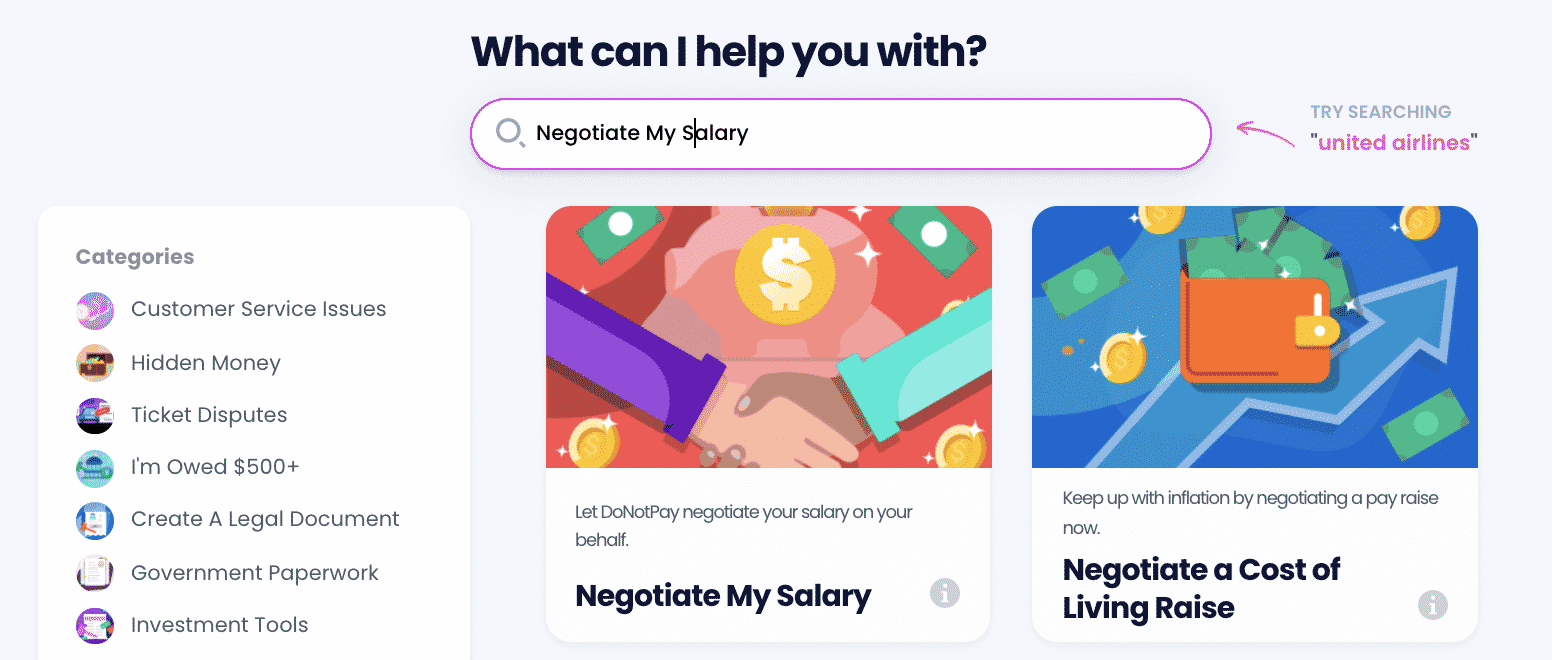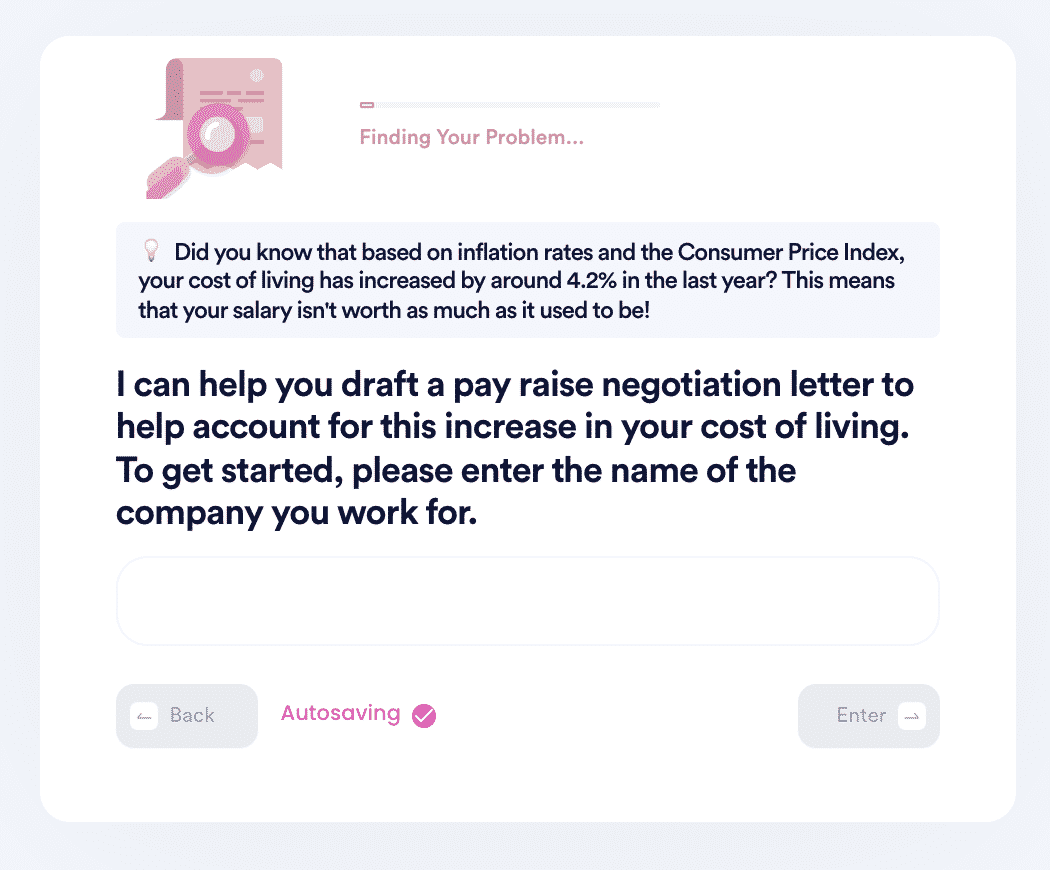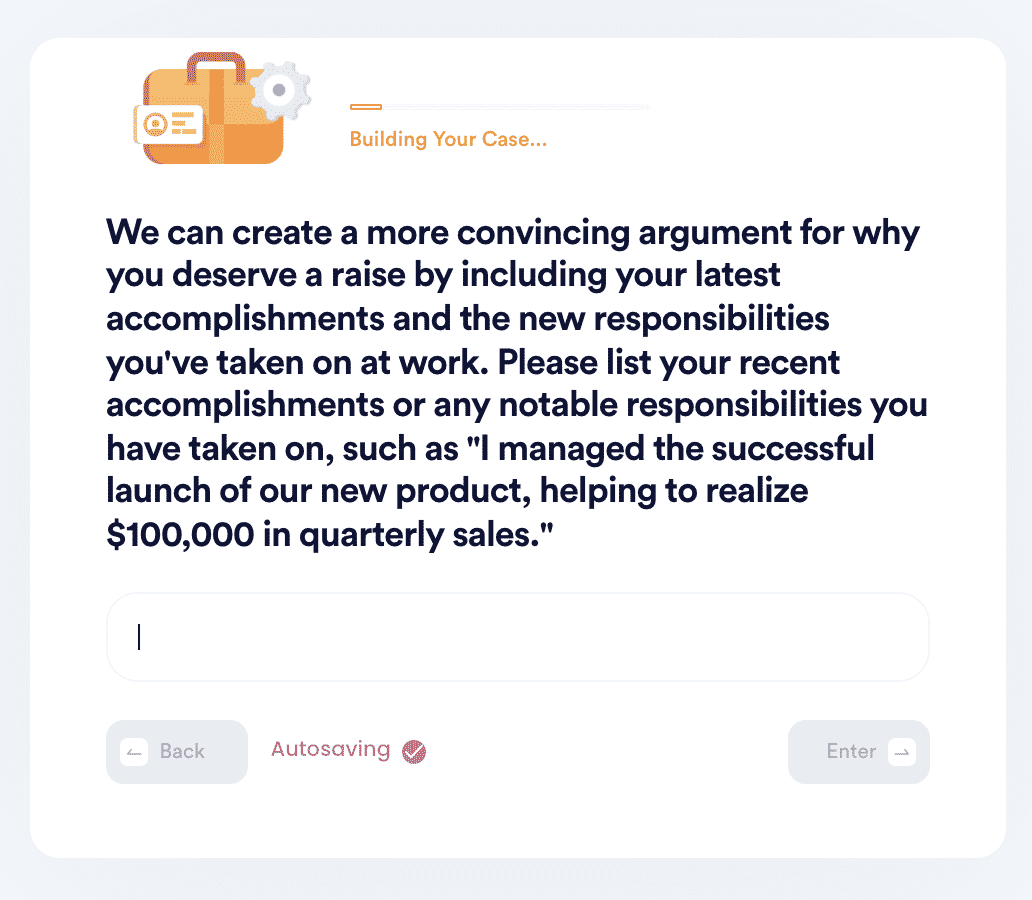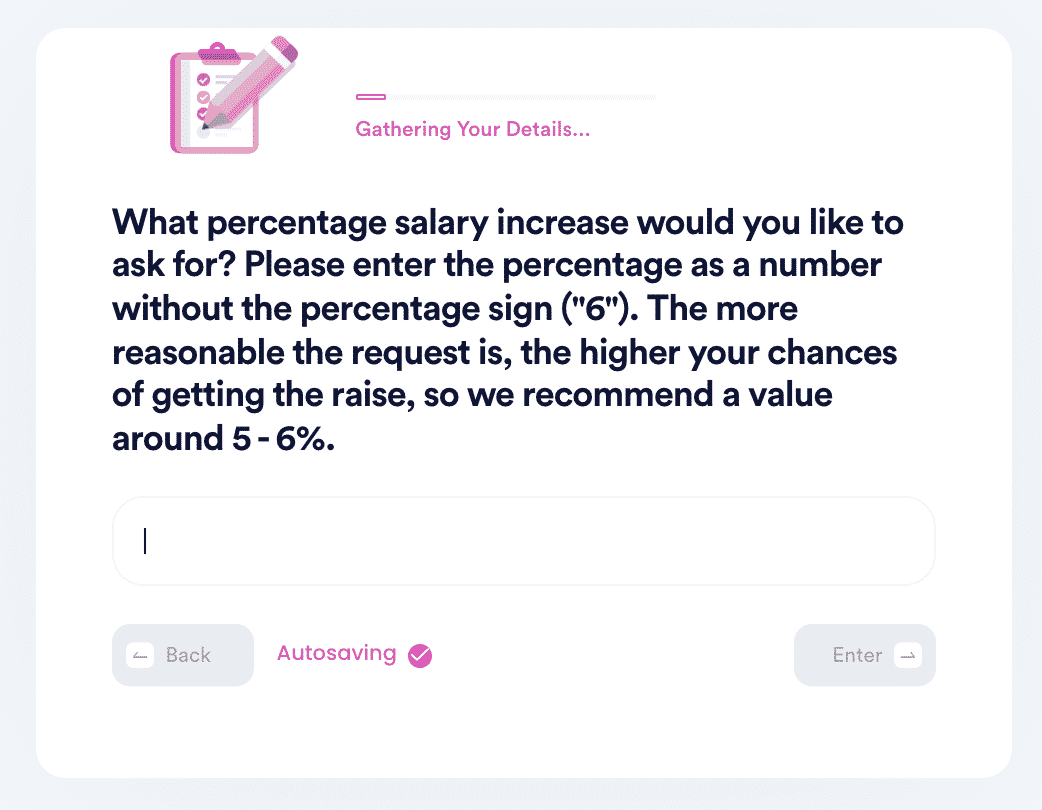When You Should — and Should Not — Negotiate Your Salary
You've found your dream job or at least, the right one for now. However, you need to know when it's the right time to negotiate your salary. You know that you need to find the right time to negotiate, so you can get the most money possible. However, you aren't sure when to negotiate your salary in the process.
Knowing and choosing the right time makes all the difference in how much you're going to be paid for the next year or so. Family members and friends have advice, and you've tried finding more information online, but you aren't sure you understand the process. The DoNotPay app can partner with you to get you the best salary possible.
What Are the Reasons to Ask For a Raise?
After you and start your new job, there might come a time when you feel like you need to ask for a raise. It can be a challenge to know when you want to ask for a raise or the reasons that would lead to you asking for one. Some of the most common reasons to ask for a raise include:
- You can show how your work has increased company profits.
- Inflation is rising in your area.
- Your list of duties has gotten longer since your last raise.
- In your field, you're paid on the low end of the salary scale.
How Much of a Raise Should You Get?
When you're considering asking for a raise, you might wonder how much you should ask for and reasonably expect to get. On average, most raises run between three and five percent, but there are a few factors that go into the amount of a raise, such as:
- Your location.
- Inflation increases.
- Your years of experience with the company.
- Your current salary compared to others in your field.
3 Tips for Negotiating Salary
Here are some general tips for a better chance of higher pay:
| Be backed with hard data | Show evidence of what you are worth. Compile past achievements that justify your raise and how much you further help the institution. |
| Timing | Knowing when to ask is critical when asking for a higher salary. For example, don't ask for a raise when the fiscal year is about to end when budgets are already settled. |
| Be confident | If you know you are worth more than they are offering don't be reluctant to negotiate for higher pay. Advocating for yourself is a sign of confidence that can help you get the salary point you wanted. |
Is There an Easier Way to Negotiate Your Salary?
It's an exciting time when you think that you've found a job that you need or one you've dreamed about for years. However, you want to make sure that you get paid what you deserve and enough to live on. It's hard to know when to negotiate your salary to get the most money.
Is it from the start, or after you've accepted the job? Everyone you know has some advice on this topic and knows someone who was successful at negotiating their salary at this point. It can be confusing. DoNotPay makes the process easier for you.
All you have to do is:
- Search "negotiate my salary" on DoNotPay.

- Enter the name of your company and the industry you work in, so we can find the right wage statistics for your role.

- Answer a series of questions regarding your qualifications and achievements, relocation expenses, and other job offers if applicable.

- Enter the new base salary you would like to request.

And that's it! Once the information is finalized, DoNotPay will generate an official salary negotiation letter that you can then email or present to your employer!
Why Use DoNotPay to Solve the Challenges of When to Negotiate Your Salary
You know that you need to negotiate your salary, but you aren't sure when. You also aren't sure if using DoNotPay is your best option. It's possible that you think it might be easier for you to negotiate your salary by yourself. However, there are three main reasons to use the DoNotPay app, such as:
- It's fast, so you can negotiate your salary and start your new position!
- It's easy to navigate the app and get the salary you want!
- It's successful, so you can earn the income you want at your new job!
We Have More Resources on Salary Negotiation
After you negotiate your salary for your new job, you aren't done negotiating. As time passes, you'll want raises when you take on more responsibilities or more money during a performance review. All of this takes the right skills to negotiate the best package. The DoNotPay app offers advice and helps for many situations where you need to negotiate pay, including:
- How to negotiate your salary
- How to ask for a raise
- How to ask for a raise by email
- When to ask for a raise
- How much of a raise should you ask for?
- Should you negotiate a salary?
- How to negotiate your salary over the phone
- How to negotiate a salary by email
- How often should you get a raise?
- Get a raise
What Else Can DoNotPay Do?
After you use DoNotPay to negotiate your salary, you'll be ready to use the app to help you in other areas of your life. DoNotPay is ready to help you with many chores and tasks. You might want to start with one or two of these:
- Discover the best way to cancel a subscription service
- Fight back against any type of workplace discrimination
- File a request for a chargeback or refund for an unauthorized charge on one of your credit cards
- And many more!
Discover when to negotiate your salary with the help of the DoNotPay app today!
 By
By